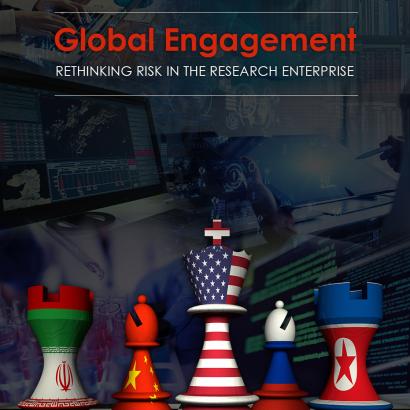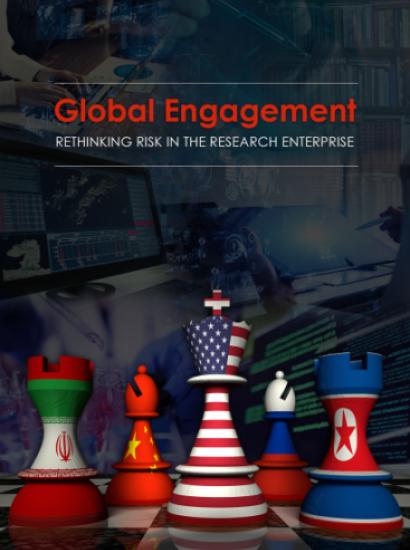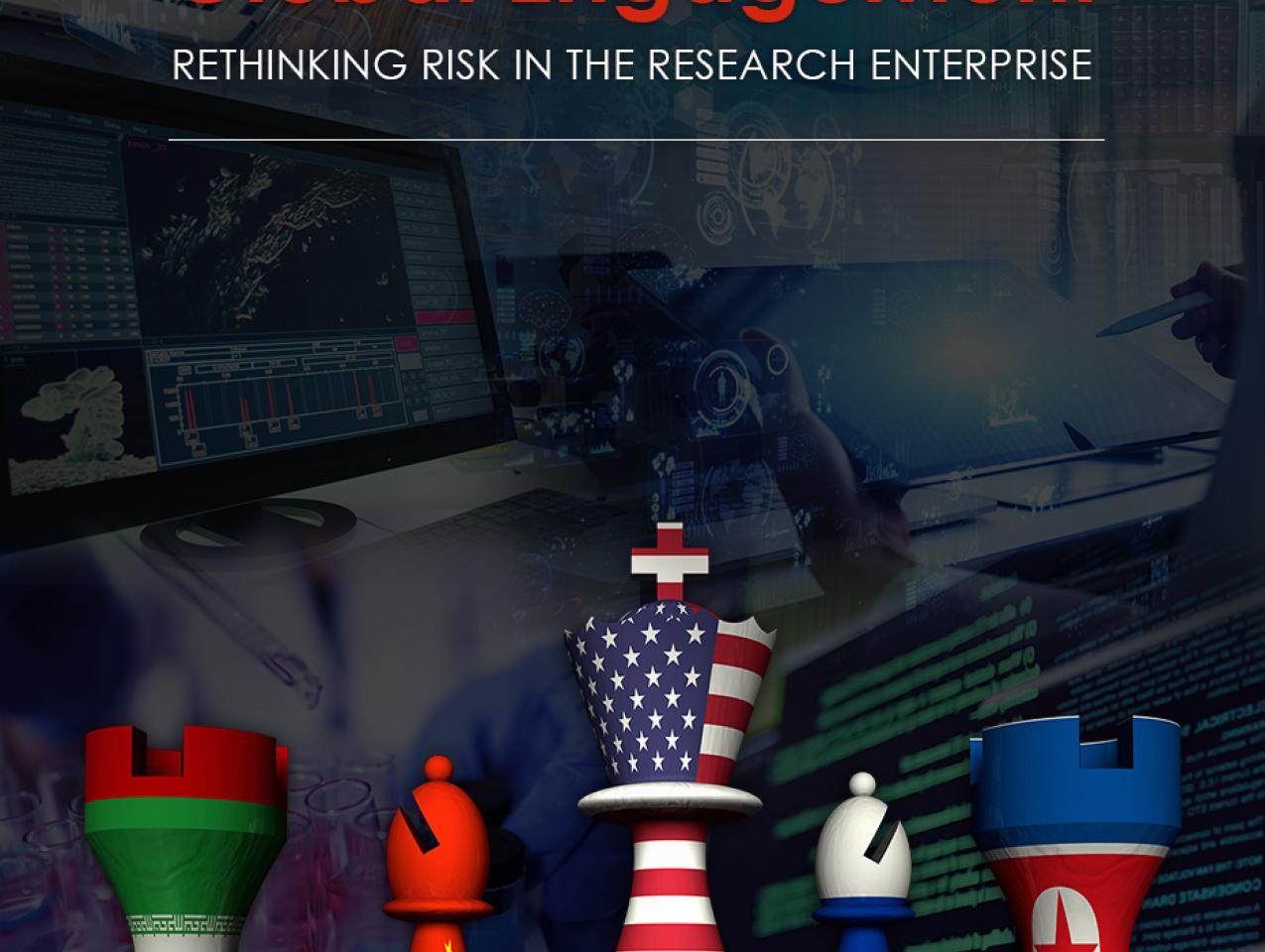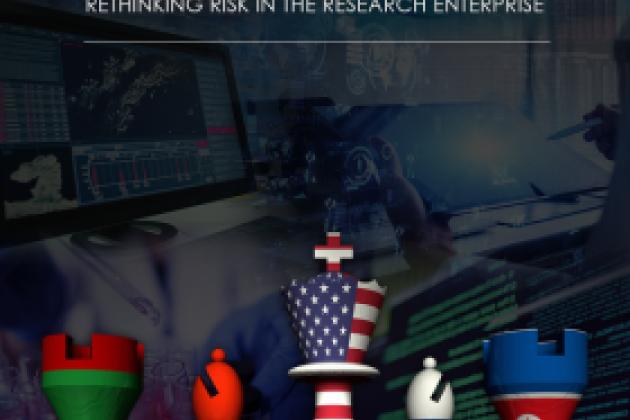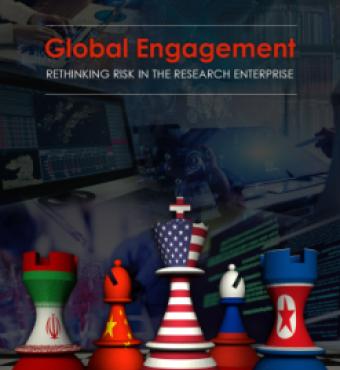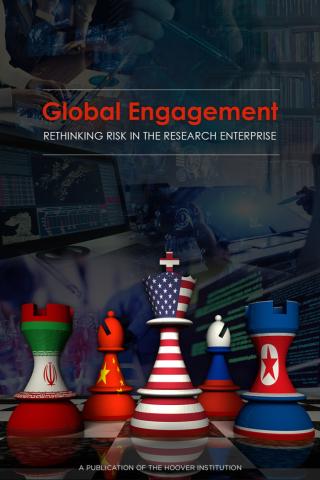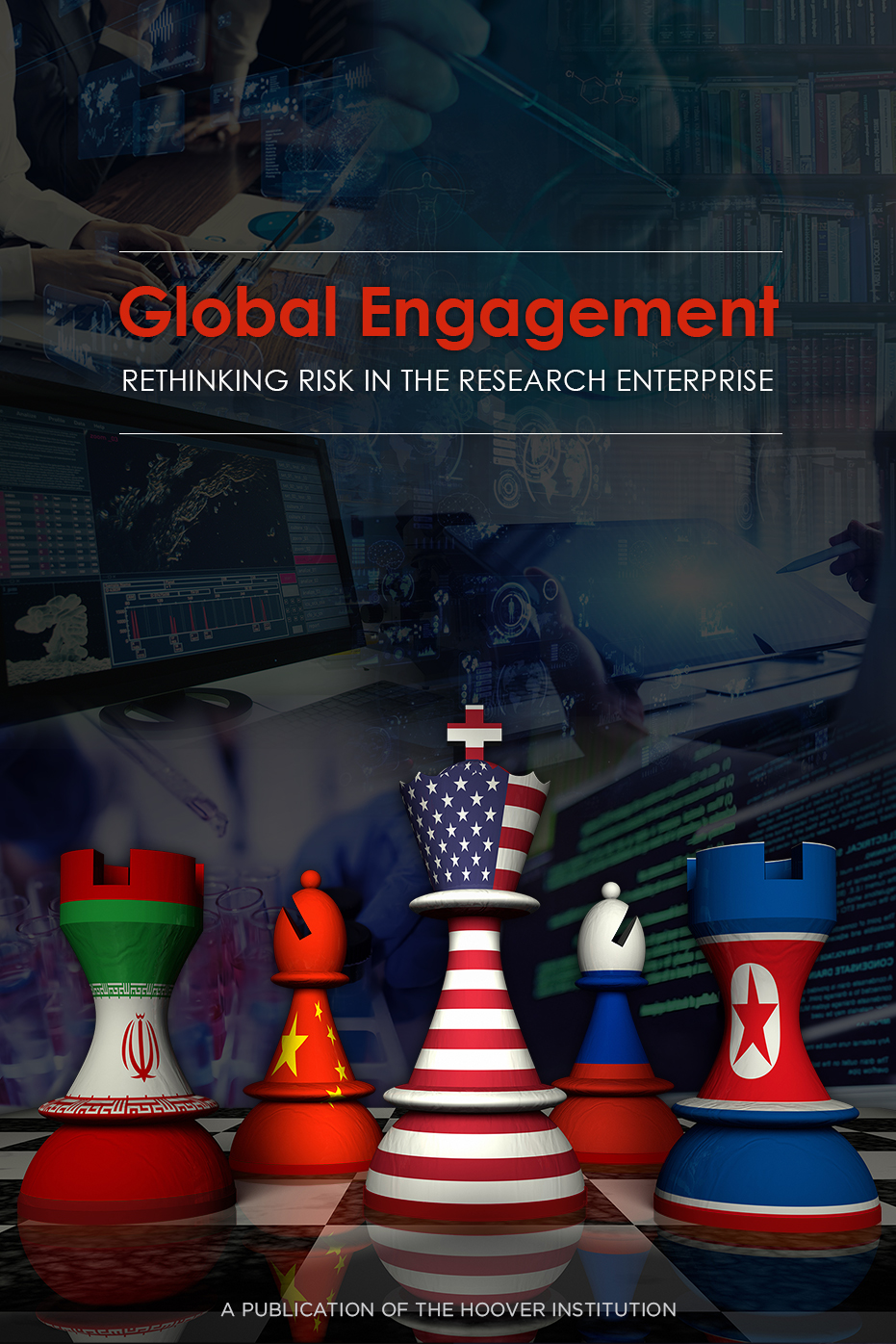
Hoover Institution (Stanford, CA) – The Hoover Institution has released a new report that details the challenges that the US government and American laboratories and universities face in their research engagements with counterparts in the People’s Republic of China (PRC). The report also offers practical recommendations to US policy makers and principals for managing the risks that these partnerships pose.
Global Engagement: Rethinking Risk in the Research Enterprise is edited by Glenn Tiffert, Hoover Institution visiting fellow and expert on the history of modern China. Tiffert manages Hoover’s projects on Taiwan in the Indo-Pacific Region and on China’s Global Sharp Power, both chaired by senior fellow Larry Diamond. The report is an initiative of the latter project, which aims to track the PRC’s efforts to subvert free and open societies and to control global narratives in favor of the ideals and ambitions of China’s Communist Party.
“Over the coming year, we will build a clearinghouse of news, policy briefs, reports, and analysis on the PRC’s disinformation and sharp power activities around the world, what we term a ‘China Influence Tracker,’” wrote Diamond in the report’s introduction. “We will advance policy options for exposing and countering these surreptitious influence activities. In that vein, we will endeavor to train journalists and civil society leaders around the world in how the PRC works to establish and disguise its inappropriate influence.”
Global Engagement: Rethinking Risk in the Research Enterprise builds upon the highly successful 2019 report China’s Influence and American Interests: Promoting Constructive Vigilance, which describes how US political, academic, and media organizations can protect themselves from the PRC’s influence operations.
The new report is divided into two chapters coauthored by Tiffert and two field experts.
The first chapter, cowritten with Jeffrey Stoff, a Chinese linguist and analyst working in the US Department of Defense, identifies and examines more than 250 US research collaborations with seven Chinese universities that are integral to that country’s defense and industrial base. Its findings are based primarily on a survey of English- and Chinese-language articles published in the scientific and engineering literature between January 1, 2013, and March 31, 2019. Tiffert and Stoff maintain that collaborations of this sort are harmful to US national interests, as China should properly be seen as a military rival and strategic competitor.
Chapter 2, cowritten with Kevin Gamache, the chief research security officer for the Texas A&M University System, advises the research community to embrace a new risk assessment and management paradigm based on the principles of operational security (OPSEC) in order to proactively protect sensitive data from exploitation by adversaries.
This report maintains that societies such as the United States, which are bound by constitutional principles of freedom and transparency, are undermined by illiberal regimes such as the PRC that do not share these values and exploit commercial and academic relationships to their strategic benefit. The contributors to this report identify several specific risks:
- The conversion of US government–funded research into intellectual property that is then commercialized by the PRC in violation of research grants or university terms and conditions.
- The transfer to China of US research by scholars who were selected by the PRC government.
- Improper PRC influence over US research grant evaluations and award decisions.
- Transfers of US research to PRC defense programs and weapons systems development that undermine or eliminate US military superiority.
- Transfer of US research to applications that violate ethical standards or democratic values, such as those that enable or enhance mass surveillance of Chinese citizens.
- The failure to report foreign affiliations, research projects, and additional sources of funding in violation of federal research grant disclosure rules.
The report reveals that the Chinese partner universities have close ties to the People’s Liberation Army (PLA), and that some of the Chinese researchers that US institutions partnered with have worked on classified PLA defense projects. It also finds that some of these researchers are connected with PRC telecommunications conglomerate Huawei, and that others obfuscated or omitted critical defense-related details from their CVs.
The report’s contributors make the following recommendations to US research institutions and policy makers:
- Expand the scope of the Global Engagement report to identify additional potential risks to US entities, to assess the economic implications of US-China research collaboration, and to investigate whether US taxpayers are funding technologies for the PRC’s strategic benefit.
- Expand vetting and due diligence by US research institutions before engaging in collaborations with PRC counterparts.
- Enhance administrative oversight of research collaborations with PRC institutions. Effective oversight also includes comprehensive reporting and periodic review.
- Create or revise common moral or ethical standards pertaining to research collaborations. Research institutions should stipulate that partnerships may not contribute to applications that violate democratic values or human rights.
- Enhance due diligence and compliance for all foreign engagements including, at a minimum, vetting of partners and funders; scrutiny of terms of proposed collaborations; constant iteration and adaptation of risk governance processes; and formal integration of diverse stakeholders, including area and subject matter specialists, into those processes.
- Establish a global engagement risk assessment and management program that rigorously evaluates all engagements with foreign entities.
- Establish a strategic global engagement review office that would provide compliance and accountability to its global engagement risk and management program.
- Change the paradigm by adopting Operational Security (OPSEC) as the governing standard for assessing and managing foreign engagement risk.
- Embrace maturity modeling to formalize and integrate the global engagement risk assessment and management program throughout the respective research institution’s operations.
- Establish a government-sponsored entity to support better decision making. This agency should be composed of multiple government stakeholders in order to facilitate routine information sharing and to provide support for the research enterprise on compliance matters involving foreign engagement.
“This report is a way forward,” explained Tiffert. “Our hope is that it will raise vigilance among policy makers and various stakeholders in the US research enterprise about the risk of conducting business with PRC-supported institutions.”
Click here to read the entire report, Global Engagement: Rethinking Risk in the Research Enterprise.
For coverage opportunities contact Jeffrey Marschner, 202-760-3187, jmarsch@stanford.edu.
WATCH THE LAUNCH EVENT







